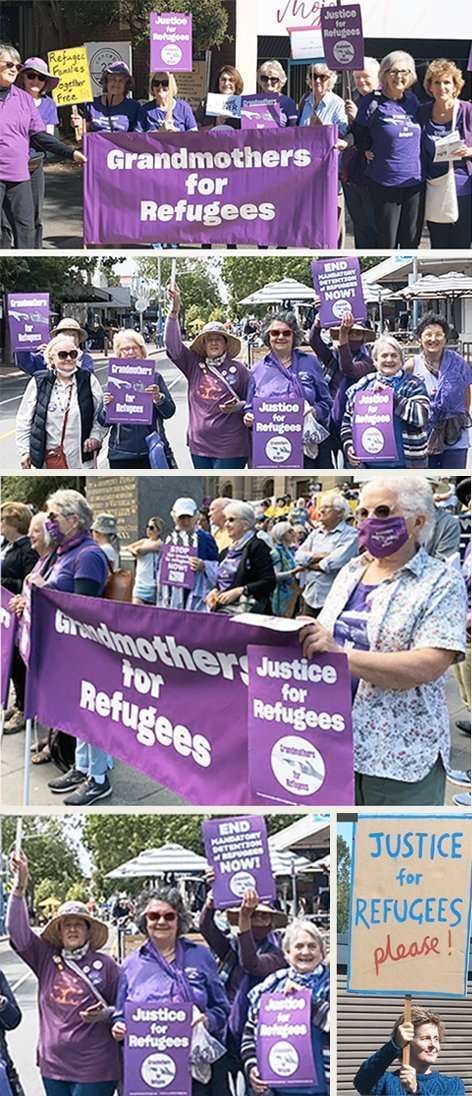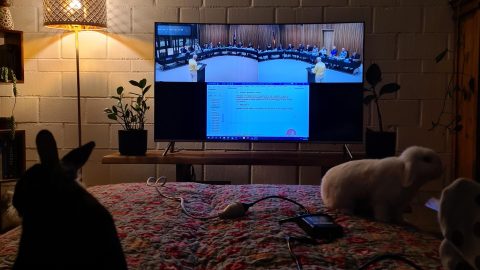Last year on election night my 6-year-old grandson wanted to know why nana was so excited about “the red team winning”. I told him I thought the “red team” were kinder, and that would help Australians be kinder to each other. A short time later that night, Mr Albanese opened his speech with an emphasis on the Australian values of kindness and fairness and courage in adversity.
This week I read about the deal brokered by that “kinder” team to pay Nauru the spectacular sum of $408 million, plus $70 million annually for the next thirty years to take the NZYQ cohort. I was glad our little boy was not asking me searching questions about my feelings on this one.
The NZYQ cohort are a group of 354 non-citizens, many of whom have broken Australian laws, some committing serious violent offences. Some, however, have never offended but were refused visas on character grounds and cannot return to countries including Iran, Myanmar and Iraq because of risk of persecution. Some grew up here. Those who have offended have all served their criminal sentences, yet, until November 2023, they were held in immigration detention, indefinitely. They were released from detention after the 2023 High Court decision that indefinite detention was unlawful.
This group has received a lot of press, with the result that some Australians now seem to confound the idea of asylum seekers and refugees with violent offenders. This is utterly wrong. The vast majority of refugees and asylum seekers are ordinary people who have been caught in the nightmares of war, persecution or natural disaster. They are people who have had no choice other than to flee for their lives.
The NZYQ cohort have become politically unpalatable for the government and they want them out of sight and out of mind. Essentially the government has agreed to pay more than $4 million for each of them to achieve this. Surely the cost of supporting onshore rehabilitation, supervision or support, as appropriate for each individual, would have been significantly less.
Also deeply concerning are the recent amendments to the Migration Act 1958 (Cth) that has been introduced to remove important safeguards on the government’s power to deport a person to a third country. The changes mean that the government can send someone to a third country without giving them the right to be heard on the matter. This is the removal of a basic protection. People affected have been deprived of the chance to provide new information or present factual errors in past information that may affect the fairness of decisions which have lifelong and traumatic consequences.
In addition to the questions around the human rights of the individuals being deported, there are questions about the impact on Nauru, a tiny island nation already facing many challenges. Nauru is just 21 square kms and has 12,500 people. 80% of the landmass is uninhabitable and unsuitable for cultivation due to the phosphate mining that was once the main industry. It has very limited freshwater supplies. The country is facing rising sea levels and economic decline. Essentially, we are exporting a complex responsibility to a vulnerable nation.
Outsourcing our responsibility for these people to our island neighbour smacks of passing the buck, (indeed a lot of bucks), and seems at odds with the Australian values that the Prime Minister referred to on election night: to show kindness and fairness and courage in adversity.
by Pauline Pannell, Grandmothers for Refugees (and Friends), Fremantle

~ If you’d like to COMMENT on this or any of our stories, don’t hesitate to email our Editor.
~ WHILE YOU’RE HERE –
PLEASE HELP US TO GROW FREMANTLE SHIPPING NEWS
FSN is a reader-supported, volunteer-assisted online magazine all about Fremantle. Thanks for helping to keep FSN keeping on!
~ Don’t forget to SUBSCRIBE to receive your free copy of The Weekly Edition of the Shipping News each Friday!







